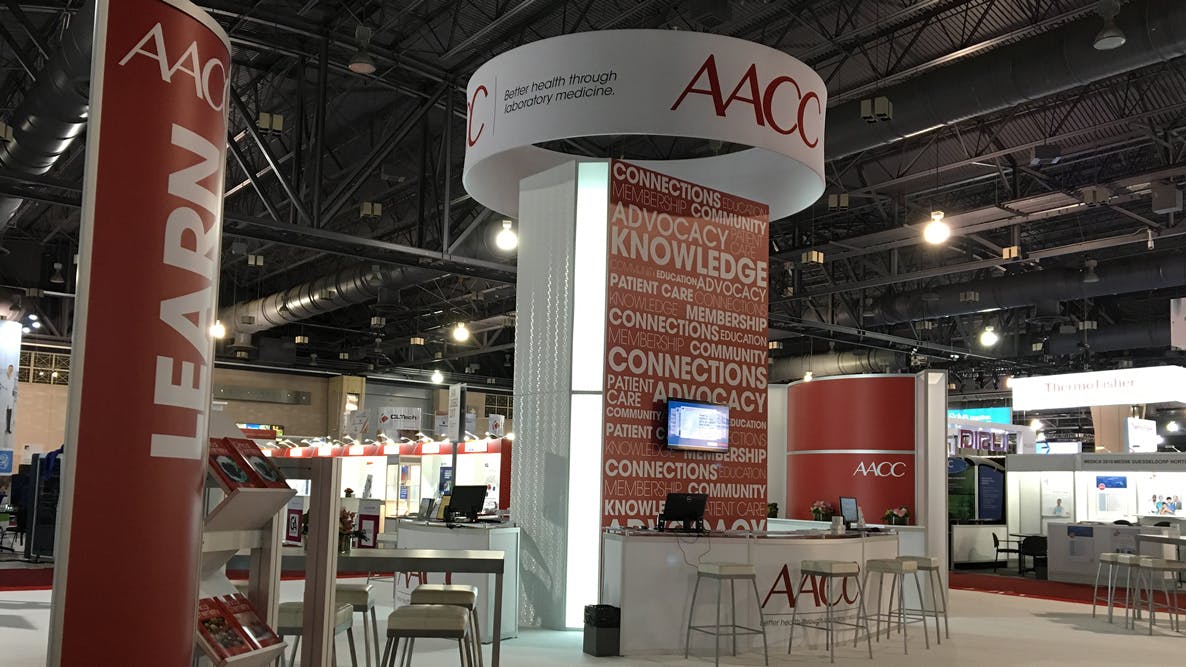Have you hugged your laboratory professional today?
After walking the American Association of Clinical Chemistry (AACC), we think laboratory professionals deserve a little more love from the industry.
Have you hugged your laboratory professional today?
After attending the 68th American Association for Clinical Chemistry (AACC) Annual Scientific Meeting & Clinical Lab Expo in Philadelphia last week, I’ve come to a realization – laboratory professionals deserve more love.
As my colleague, industrial designer Sherry Eckholm, and I walked through the AACC Expo, we saw very few companies taking the opportunity to celebrate and talk directly to these users. This feels like a very ripe opportunity. They may not all be the decision makers for equipment investments, but as the primary users of the lab they are significant influencers. Considering lab professionals provide vital insight and guidance so patients can get the care they need, we think they deserve more recognition from the industry.
AACC is a global scientific and medical professional organization dedicated to clinical laboratory science and its application to healthcare. Its focus is helping lab professionals adapt to change and do what they do best: provide vital insight and guidance so patients get the care they need.
So who are these people and what do they do? Think health professionals who provide laboratory information and services for the diagnosis and treatment of disease. Clinical lab scientists perform tests that detect abnormal cells, analyze human samples such as blood, identify causes of infection, and detect DNA markers for genetic diseases. These professionals are, in short, really, really important. Because the public doesn’t see them in the process of getting their care, they are all-to-easy to overlook. But in forums such as the AACC Expo, lab professionals deserve a starring role.
The AACC Expo hosted hundreds of exhibitors in all areas of clinical laboratory science, offering wicked-smart scientific solutions to bridge the gap between a physician and their patient. Every year, I walk away humbled and impressed. The overall theme of “better patient outcomes” sums up the reason for this industry and speaks to the ultimate end-user of healthcare services. And underlying themes of “faster, fastest, and highest throughput” all speak to ensuring that labs can be profit centers, not cost centers that supply necessary data. But surprisingly, little of the Expo’s messaging is focused on lab professional-centered solutions (i.e., human-centered design).
Fortunately, there is a movement underway by the larger players in the industry (Abbott, Siemens, Thermo Fisher, BD, Beckman Coulter, Roche, etc.) to build systems that optimize current global trends in healthcare such as consolidation, a push to make the core lab profitable, and the use of lab technicians with less training who are expected to work across platforms.
However, there is still an opportunity for the industry overall to up the game and for more players to focus on improving the lab professional’s job through tools, systems and interfaces that are easier to use. The goal should be to help them efficiently and effectively do their jobs and focus on the science and patient outcomes that drew them to the field in the first place.
Technology and systems are critical to efficiency, answering the call from labs to do more with less. Robotics and automatically generated data allows for quicker time-to-results. But while advanced robotics and technology may reduce the amount of humans required in a lab, the healthcare system still relies on these lab professionals to perform their science, manage lab technicians and maintain equipment and processes. If laboratory solutions can deliver technology along with user-centered design of their systems, then they can reduce roadblocks and information gaps that slow down lab professionals.
While we are pleased that the industry appears to be building momentum for embracing human-centered design, in the meantime they can embrace the opportunity to further acknowledge the lab professional in the messaging at the Expo itself.
After all, showing some love for these underappreciated professionals doesn’t take years of product development and FDA approval. And it could be a great start to furthering a dialogue that leads to better laboratory solutions.
